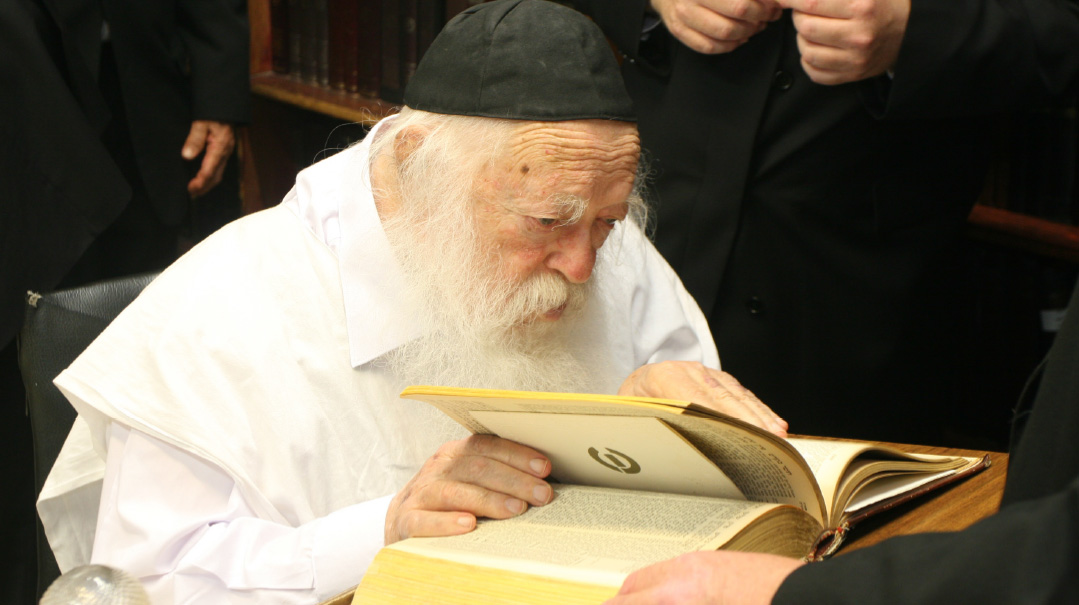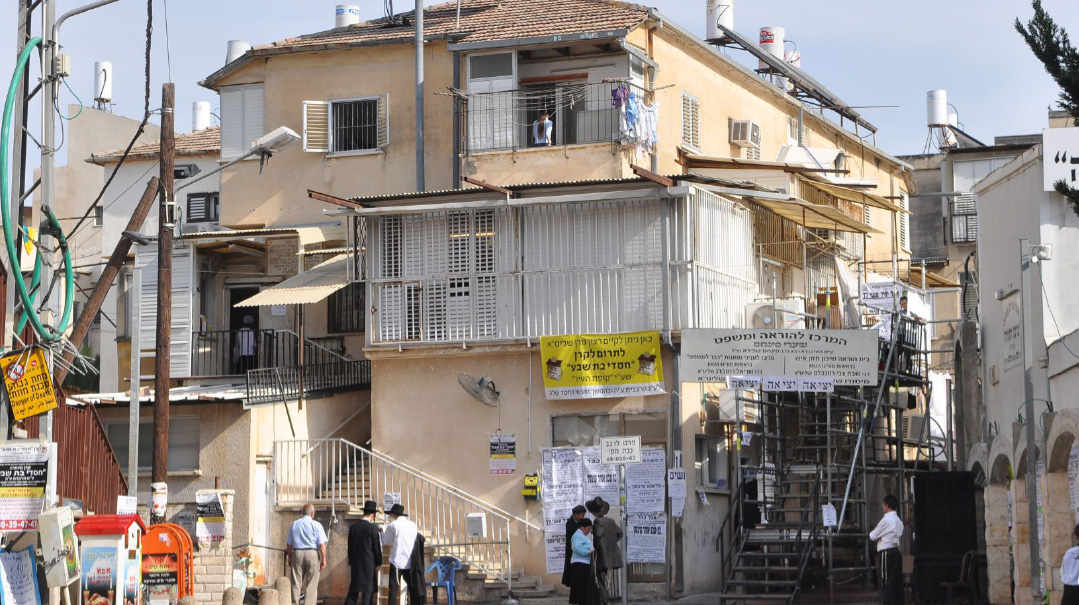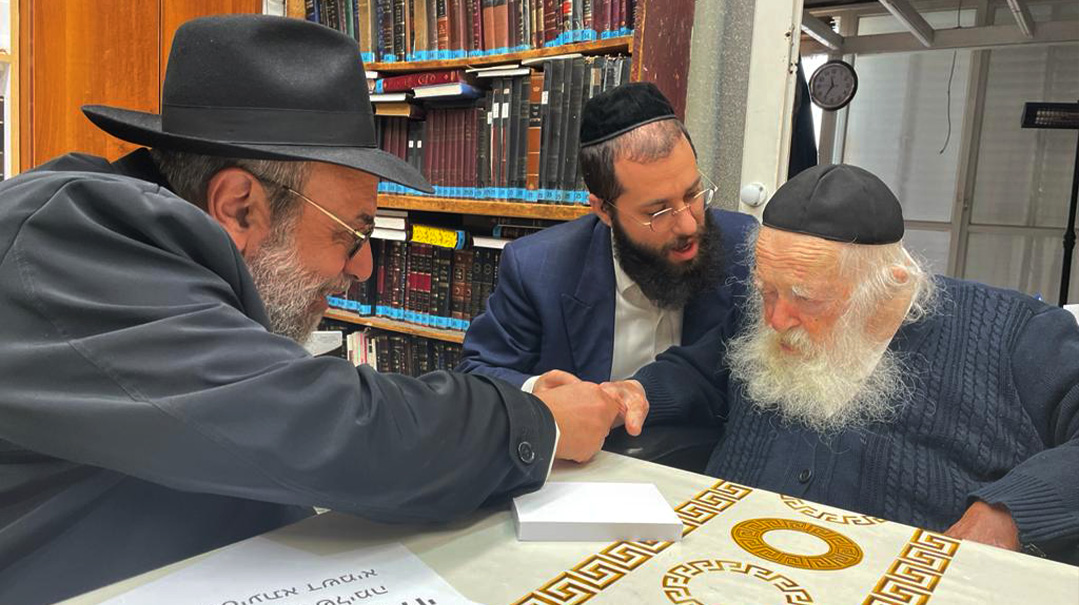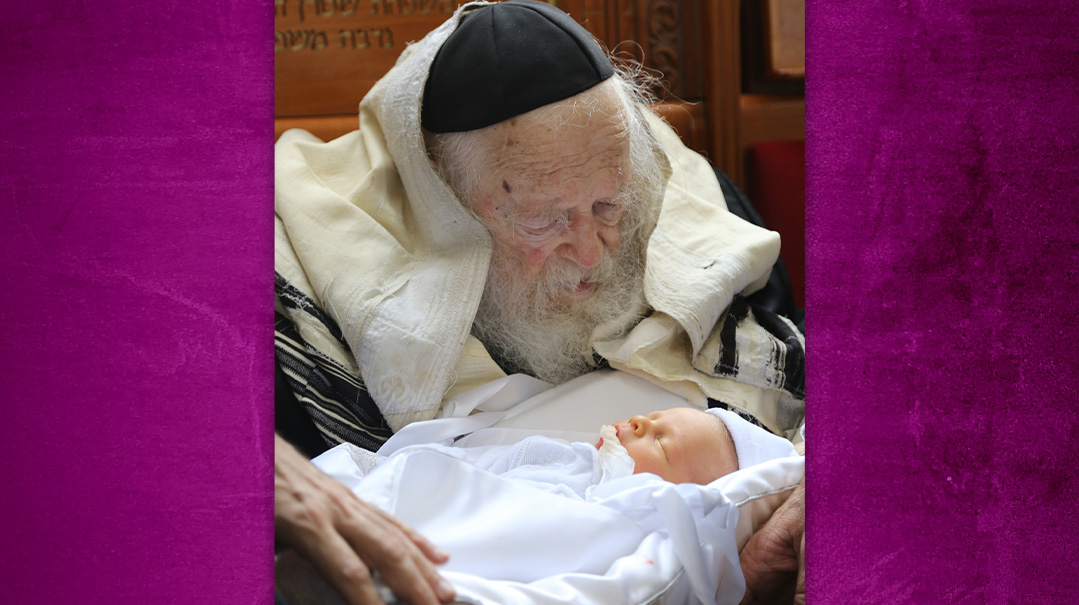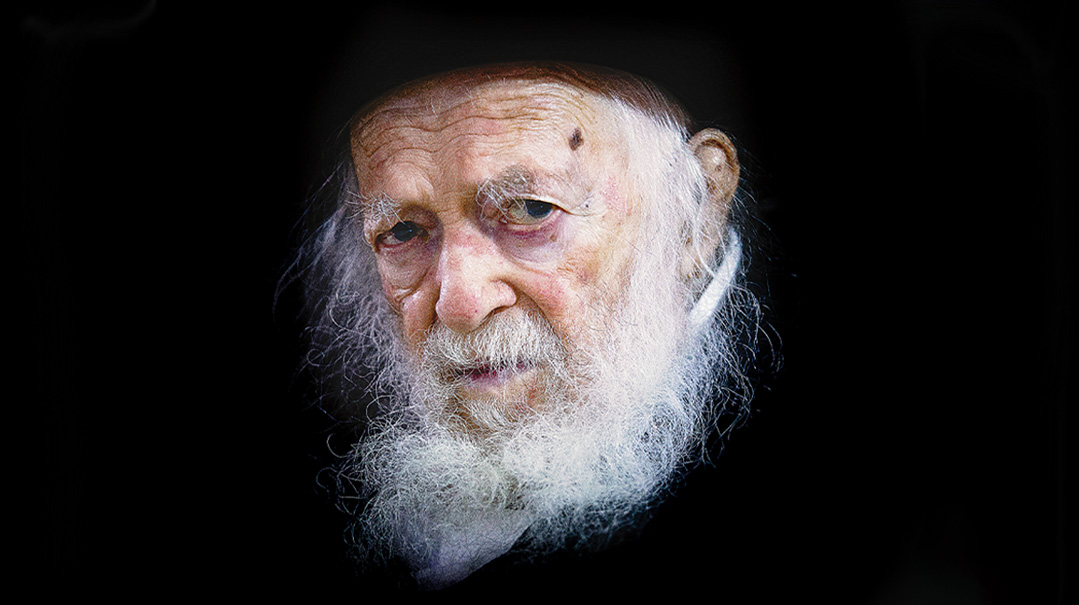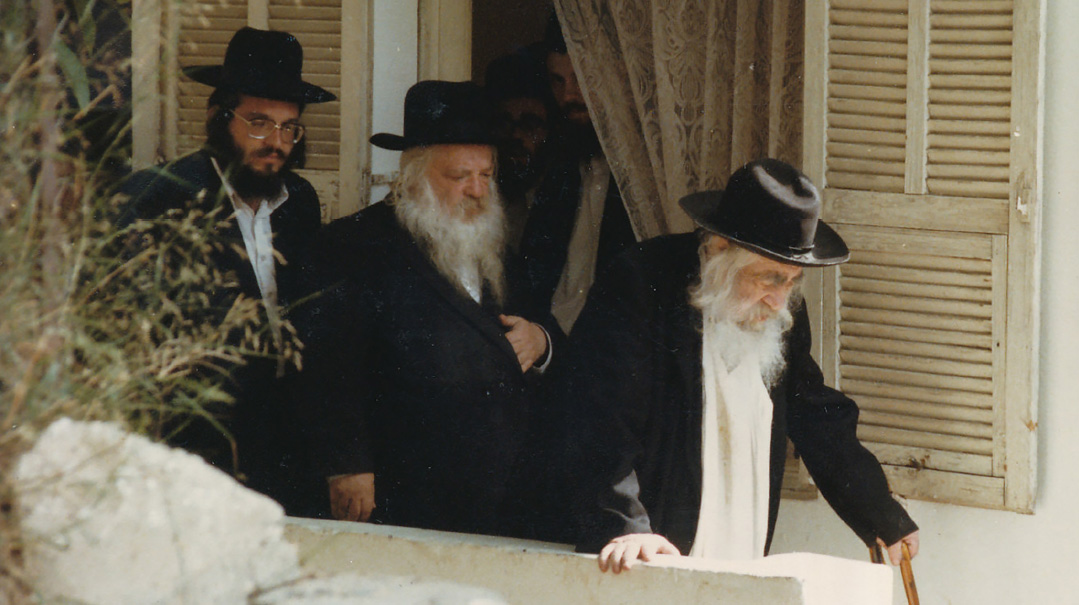A Nation’s Address

If you went with Rav Chaim, you were accepting that you would get an answer from Shamayim
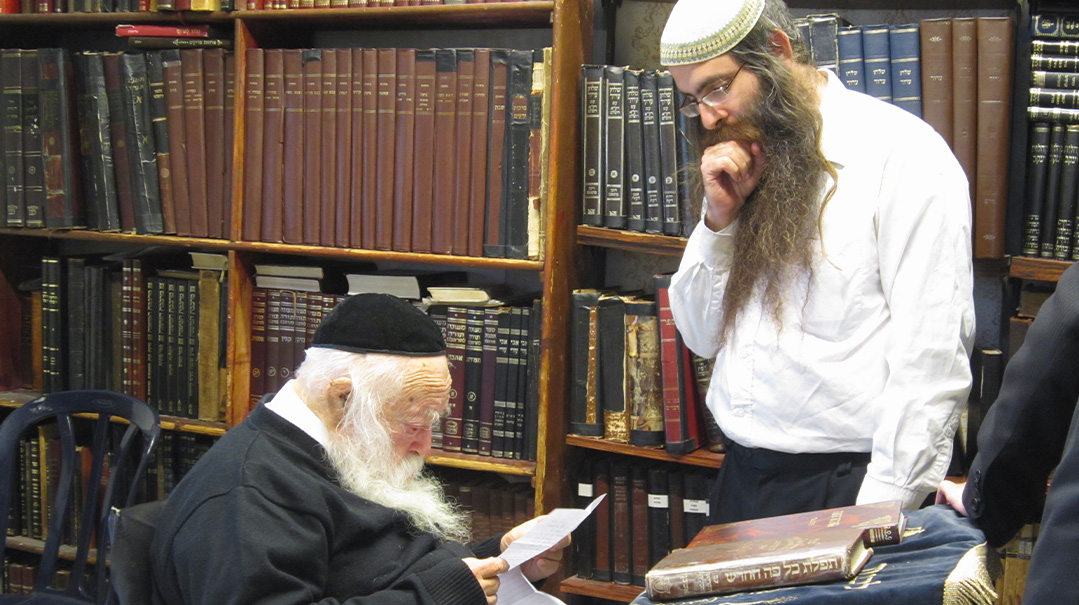
Rosh Hashanah 2019 was approaching, and a hint of the holy day hung over the park in south Tel Aviv.
A crowd a few hundred strong sitting on plastic chairs devoutly sang along to a head-spinning mix of Sephardic classics like “Adon Haselichot” and “Ben Adam Mah Lecha Nirdam” performed by a shtreimel-clad choir.
It was deep into Israel’s repeat-elections crisis, and the unusual event was a Selichos-cum-political rally staged by the Degel HaTorah party.
Holding court on a bench on the perimeter of the event was a man called Ben Elyagon.
“We’re all Tel Avivians who’ve been chozer b’teshuvah,” he said gesturing to his track-suit-and-sneaker-clad friends. “The whole of the next neighborhood, Kfar Shalem, is like us.”
Asked what had brought the crowd of traditional Israelis to a markedly litvish political rally, Elyagon pointed to the man sitting at the dais, sunk in his thoughts. As teens took the microphone and pledged to wear tzitzis, keep Shabbos, or eat kosher, and then stooped over to kiss the gadol’s hand, the Tel Avivian said simply: “It’s Rav Kanievsky. He’s a great tzaddik!”
Three years later, echoes of those words could be heard this week at the enormous levayah, as many of those same traditional Jews joined hundreds of thousands who mourned the loss of that very tzaddik.
“Rav Chaim drew to him all of Am Yisrael,” says Rabbi Shai Graucher, a popular author who has brought Rav Chaim’s teachings to the English-speaking public and was a fixture in his home. “I brought in talmidei chachamim, airline stewards, doctors, Sephardim, Ashkenazim — everyone wanted to see the gadol, and he was there for everyone.”
Trying to understand who Rav Chaim Kanievsky really was is an exercise in creating order out of that enigma, and meaning out of cliché.
Rav Chaim’s Torah knowledge was legendary, like a supercomputer. His brachos were fulfilled again and again. Holiness was visibly etched in his face. He made life-and-death decisions for individuals, and fateful choices for the Jewish People as a whole.
But all of those different facets, and the multitude of different Jews who were drawn to him, says Rav Lipa Yisraelzon, a nephew of Rav Chaim who became very close to his uncle, all stemmed from one source.
“From when I was a child, I realized who Rav Chaim was. He was a faithful servant to Hashem, who was determined to do what every Jew should do at every given moment — and let nothing stand in his way.”
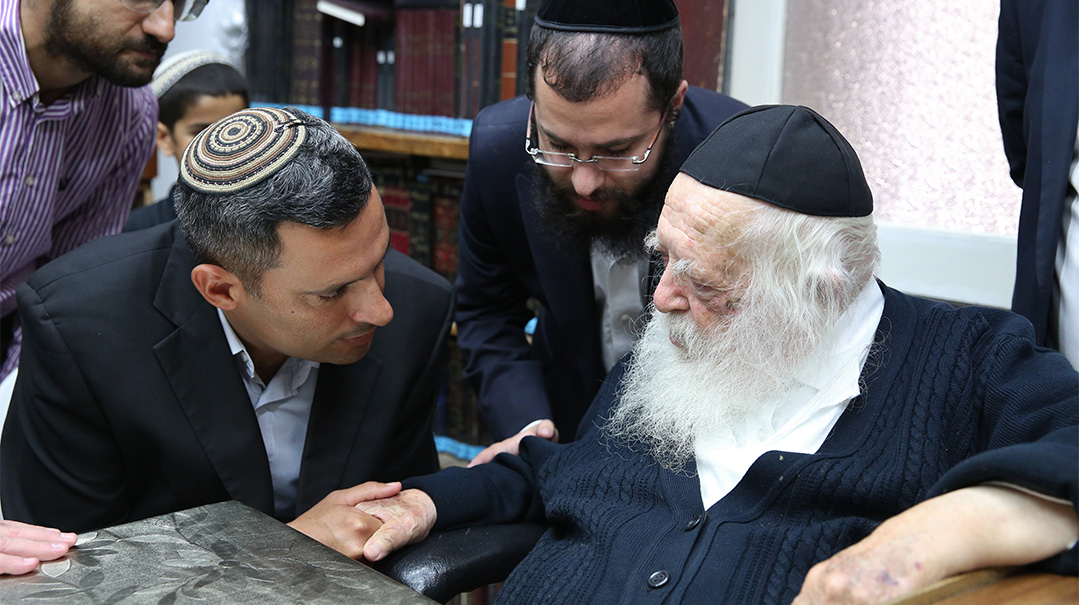
Photo: Flash 90
Inner Worlds
The camera, they used to say, doesn’t lie, and the myriad photos of Rav Chaim Kanievsky show him in three poses — all true to life.
One is gripping a sefer, delving into the Torah he loved. The second is serious, his inner world reflected in a gaze that could be intense and forbidding. The third is smiling, his face alight with joy.
“Rav Chaim was such a pleasant person to be with — he made you feel at ease, and want to talk to him,” says Rav Yisraelzon, who has been responsible for printing many of his uncle’s seforim.
“Years ago, he said to me, ‘Why don’t you daven vasikin? If you come to my minyan, there’s no Tachanun!”
That light-hearted banter continued when the young Lipa turned up, and for a whole week, there was no bris to absolve the minyan of Tachanun.
“I went to him and complained, ‘You said that there’d be no Tachanun?!’ ”
Rav Chaim’s answer came with a smile. “Yes, it’s because you started to come every day!”
Many of the thousands of visitors who passed through the famous study on Rechov Rashbam didn’t see that lighter side, but they couldn’t miss the love for Torah that defined Rav Chaim.
“When Rav Elyashiv was 93, he had an operation, and as a relative, I was privileged to spend time with him there,” says Rav Yisraelzon. “He couldn’t sleep, yet he was so weak that he couldn’t even turn the pages to learn. Instead, I saw him gesturing with his hands.
“Next morning, I gathered up the chutzpah to ask him what he’d been doing, and he told me that he’d been thinking through his learning.”
Rav Yisraelzon later recalled the scene to his uncle, whose reply encapsulated Rav Chaim’s utter single-mindedness about Torah: “But what else is there to think about besides learning?” he asked rhetorically.
Rabbi Shai Graucher also witnessed that superhuman dedication to Torah study up close.
“Many times, when he rested during the day, he would hold a sefer, like a child holds a doll. And when he rested, it wasn’t real rest. He would wake up, ask to wash his hands, and then say that he’d just finished Menachos, or another part of Shas.”
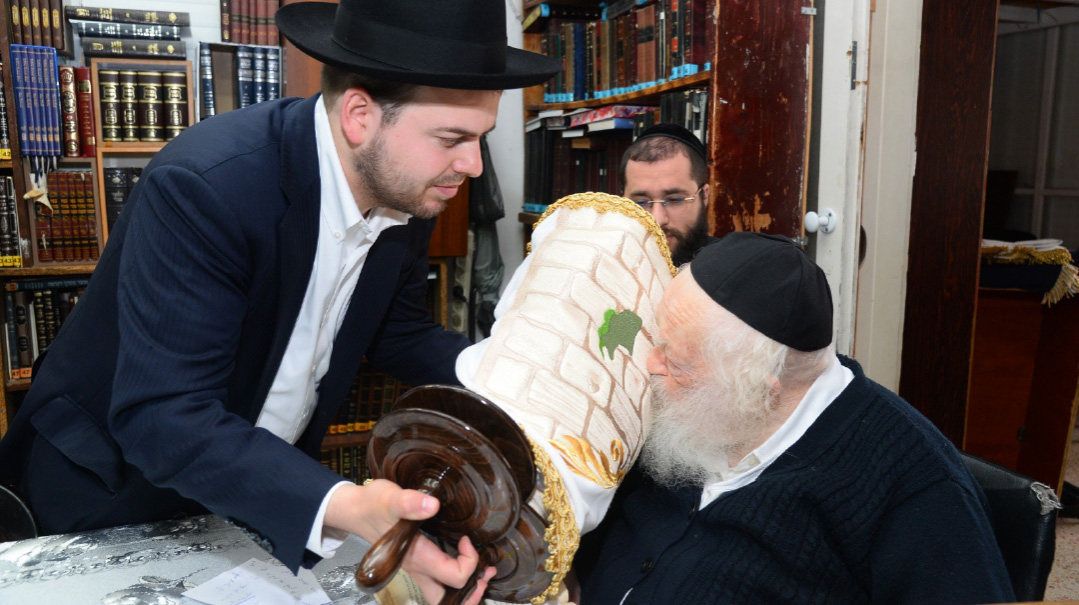
“I saw many questions of life and death,” says Rabbi Shai Graucher. “Rav Chaim could contradict doctors, and he took responsibility in very serious cases”
Different Dimension
The crowds who came knocking to see Rav Chaim were also drawn by his brachos.
It was Rav Elyashiv who defined his son-in-law best in this area. There are different levels in Shamayim, he said, and one is the mekor habrachos — where blessing comes from. Rav Chaim is in charge of that.
“There were many questions of life and death that I saw,” says Rabbi Graucher. “Rav Chaim could contradict doctors, and he took responsibility for what he was saying in very serious cases.”
Rav Lipa Yisraelzon recalls a case in point.
“There was a rosh yeshivah in America who called me because a talmid of his — who was just about to close a shidduch — had been diagnosed with a light, treatable cancer. The prospective kallah’s family wanted it call it off, and they would only go ahead if Rav Chaim said that they would be okay.
“The rosh yeshivah flew in for a day, and I wrote a sh’eilah for Rav Chaim. We went in, and he took the letter.
“Rav Chaim, as everyone knows, read and absorbed very fast. He closed his eyes, and scrunched up his forehead thinking. It was like Ne’ilah of Yom Kippur in the room, as we waited for the decision.
“Then he opened his eyes, and said, ‘Lo kedai — it’s not worth calling the shidduch off. They’ll have a good life.’ ”
Knowing that the family back in America would settle for nothing less than a full-throated brachah, Rav Yisraelzon persisted. “Kevod Harav, they’ve come specially from America…”
Rav Chaim responded again “They’ll have doros yesharim.”
The couple’s five children bear out that promise, but the episode also illustrates something wider about Rav Chaim’s unique position.
“His approach was not something that he saw from his father, the Steipler, or from his uncle the Chazon Ish.
“With Rav Chaim, there wouldn’t be a discussion, or a way to convince him by bringing experts — he based his decisions on his Torah. There was ruach hakodesh — that’s the only way to explain how he decided things.”
One case that Rav Yisraelzon recalls was of a man who had just lost his son, and during the sheloshim was told that he had something that looked like a cancerous growth.
In tears, he turned to Rav Chaim whether to do surgery, and the gadol’s response was that the man should learn Kodshim.
“Years later, that man is healthy after having listened to Rav Chaim, who told him that there was no need to do any further tests,” says Rav Yisraelzon. “That’s not a standard response from a rav, but if you went with Rav Chaim, you were accepting that you would get an answer from Shamayim.”
That echoes something that Rabbi Graucher told Mishpacha in an interview two years ago. “He isn’t a baba or a mekubal who interprets people’s names or divines their actions and the spiritual tikkunim they need to perform,” he said. “It’s that the power of his Torah gives him enormous siyata d’Shmaya, and when questions are brought to him, the correct answers are placed in his mouth. The Rav himself says he doesn’t even know why.”
That approach — perhaps more characteristic of the chassidic approach to Torah leadership — meant that following Rav Chaim Kanievsky required utter faith, emunas chachamim.
“When Rav Chaim says something,” Rabbi Graucher continued in that interview, “I take it with the utmost seriousness. A woman once called and told me that her daughter had already been waiting for seven years to find her zivug, and they were desperate for the Rav’s brachah. When I told this to Rav Chaim, he responded, ‘B’karov.’ ”
Reb Shai felt so confident with the answer that he even advised the woman to order a sheitel for her daughter. To the degree to which a person has faith in a Torah sage, the Rav’s proclamations have the power to create reality.
There was another aspect to Rav Chaim, says Rabbi Graucher, that most people were unaware of.
“Beyond the Torah, Rav Chaim stood for chesed. Huge sums came through his hands. Moshe Reichmann had given money to the Steipler to distribute, and continuing the tradition, people gave money to Rav Chaim as well.
“His son Rav Yitzchak Shaul Kanievsky and grandson Yanky administer the funds, and it was Rav Chaim’s tzavaah to me — only a few months ago — that the tzedakah should continue.”
Leadership Lessons
Operating in a different dimension defined Rav Chaim’s years of public leadership.
“It’s a mistake to think that he became a manhig after Rav Steinman died,” says Rav Yisraelzon. “He never saw himself as a leader. He literally didn’t imagine that a minyan would wait for him to begin chazaras hashatz! For 90 years he never saw himself that way, and he never changed.”
Instead, the public questions that came to him, including in the Covid years, when questions of public health versus Torah study came to dominate Israel’s media discourse, were answered the same way as before.
Rav Shlomo Kanievsky — Rav Chaim’s son — did detect a change in his father when leadership responsibilities took over after Rav Steinman’s passing.
“Seven years ago, he didn’t realize the role he played at all,” he told Mishpacha in 2019. “He saw himself as a private citizen, a talmid chacham learning and writing in Bnei Brak. I remember when the tzaddik Rav Mattisyahu Salomon came to Eretz Yisrael to plead with him to come to America for the Internet asifah. Rav Mattisyahu, who was in such pain he could barely make it up the steps, explained that Abba’s being there would make a tremendous impact, but my father didn’t see it that way. He genuinely didn’t accept that he was that significant.
“Today, Abba has made peace with the fact that he has to relinquish a little more of his privacy.”
Giving more of his time was one thing — changing his approach another.
“It’s also ruach hakodesh,” Rav Shlomo said of his father’s almost intuitive responses to weighty questions. “But my father has a very strong sense about people. I’ve seen individuals or organizations come in and try to get a brachah or signature from him, and he won’t do it. They can’t schlep it out in any fashion.
“But of course, as Abba explains in Orchos Yosher, a tzaddik sometimes says things he himself doesn’t completely understand.” •
(Originally featured in Mishpacha, Issue 904)
Oops! We could not locate your form.
